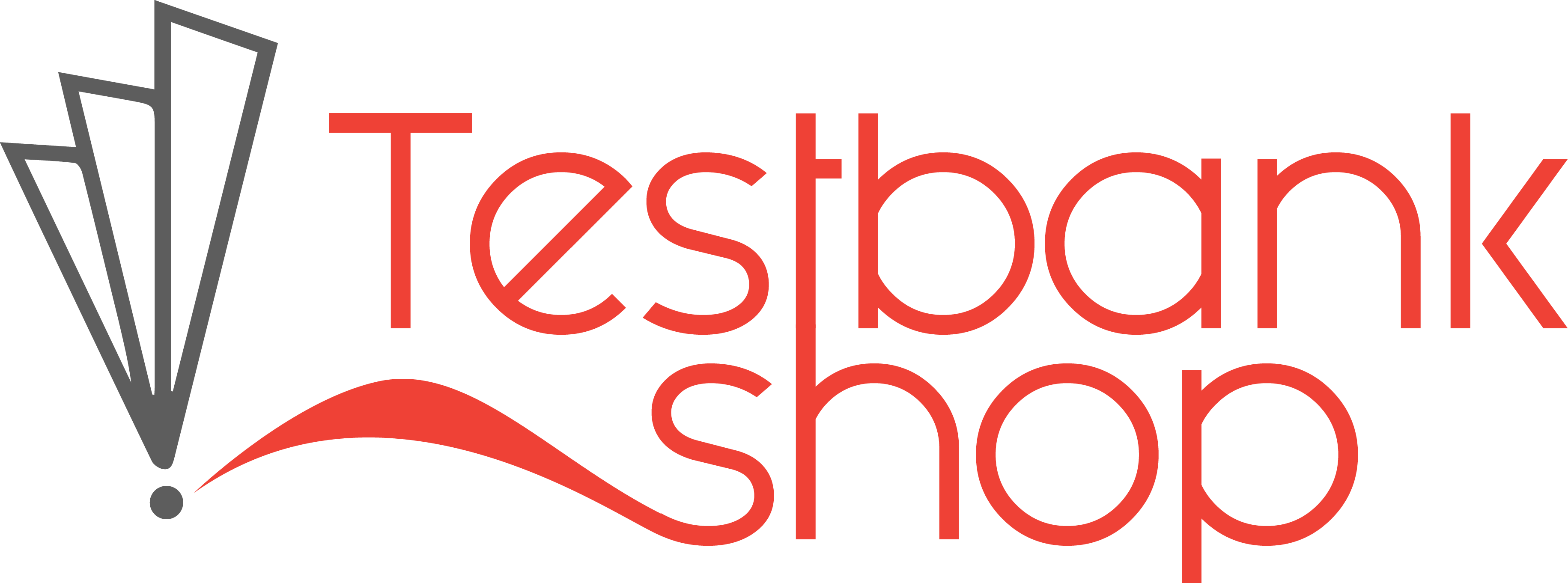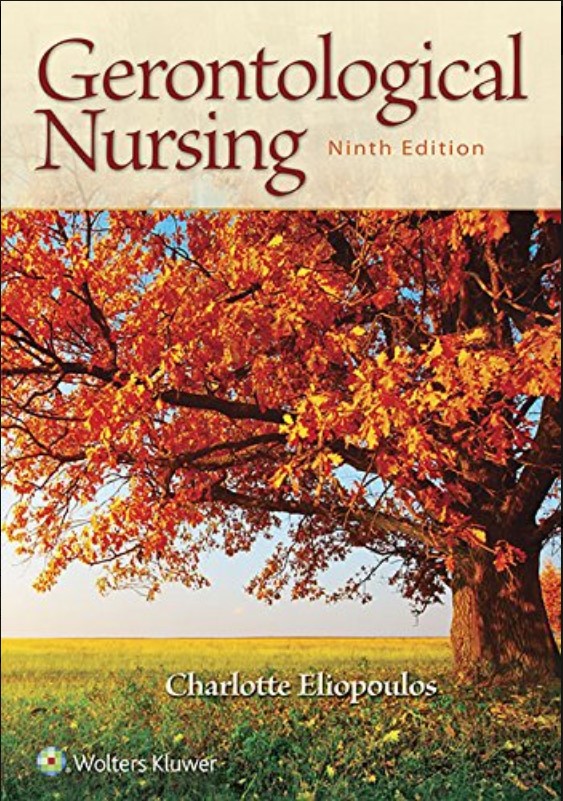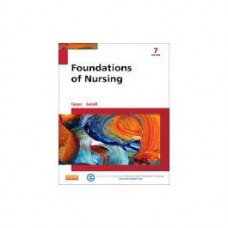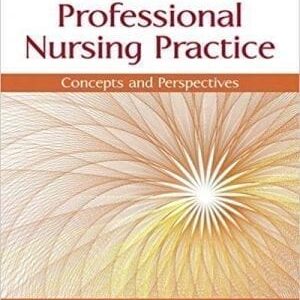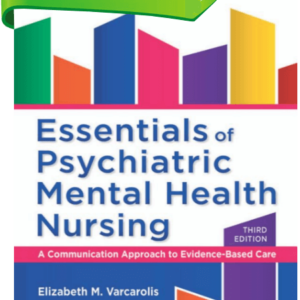Test Bank for Gerontological Nursing 9th Edition By Eliopoulos
ISBN-10: 0060000384,ISBN-13: 9780060000387
Chapter 1 The Aging Population
Test Bank
MULTIPLE CHOICE
1. The nurse explains that in the late 1960s, health care focus was aimed at the older adult
because:
a. disability was viewed as unavoidable.
b. complications from disease increased mortality.
c. older adults needs are similar to those of all adults.
d. preventive health care practices increased longevity.
ANS: D
Increased preventive health care practices, disease control, and focus on wellness helped people
live longer.
DIF: Cognitive Level: Comprehension REF: 2 OBJ: 2
TOP: Aging Trends KEY: Nursing Process Step: Implementation
MSC: NCLEX: Health Promotion and Maintenance: Growth and Development
2. The nurse clarifies that in the terminology defining specific age groups, the term aged refers to
persons who are:
a. 55 to 64 years of age.
b. 65 to 74 years of age.
c. 75 to 84 years of age.
d. 85 and older.
ANS: C
The term aged refers to persons who are 75 to 84 years of age.
DIF: Cognitive Level: Comprehension REF: 2, Table 1-1 OBJ: 1
TOP: Age Categories KEY: Nursing Process Step: Implementation
MSC: NCLEX: Health Promotion and Maintenance: Growth and Development
3. The nurse cautions that ageism is a mindset that influences persons to:
a. discriminate against persons solely on the basis of age.
b. fear aging.
c. be culturally sensitive to concerns of aging.
d. focus on resources for the older adult.
ANS: A
Ageism is a negative belief pattern that influences persons to discriminate against persons solely
on the basis of age and can lead to destructive behaviors toward the older adult.
DIF: Cognitive Level: Comprehension REF: 5 OBJ: 3
TOP: Ageism KEY: Nursing Process Step: Implementation
MSC: NCLEX: Psychosocial Integrity: Psychosocial Adaptation
4. The nurse points out that the most beneficial legislation that has influenced health care for the
older adult is:
a. Medicare and Medicaid.
b. elimination of the mandatory retirement age.
c. the Americans with Disabilities Act.
d. the Drug Benefit Program.
ANS: A
The broadest sweeping legislation beneficial to the older adult is Medicare and Medicaid.
DIF: Cognitive Level: Application REF: 16 OBJ: 6
TOP: Legislation KEY: Nursing Process Step: Implementation
MSC: NCLEX: N/A
5. The nurse clarifies that a housing option for the older adult that offers the privacy of an
apartment with restaurant-style meals and some medical and personal care services is the:
a. government-subsidized housing.
b. long-term care facility.
c. assisted-living center.
d. group housing plan.
ANS: C
Assisted-living arrangements offer the privacy of an apartment or condominium with meals
prepared and served, limited medical care, and a variety of personal services.
DIF: Cognitive Level: Application REF: 14 OBJ: 9
TOP: Housing Options KEY: Nursing Process Step: Implementation
MSC: NCLEX: Physiological Integrity: Physiological Adaptation
6. The 75-year-old man who has been hospitalized following a severe case of pneumonia is
concerned about his mounting hospital bill and asks if his Medicare coverage will pay for his
care. The nurses most helpful response is Yes. Medicare:
a. pays 100% of all medical costs for persons older than 65.
b. Part B pays hospital costs and physician fees.
c. Part A pays for inpatient hospital costs.
d. Part D pays 80% of the charges made by physicians.
ANS: C
Medicare Part A pays inpatient hospital costs, Part B pays 80% of physicians charges, and Part D
helps defray prescription drug costs.
DIF: Cognitive Level: Application REF: 16 OBJ: 6
TOP: Medicare Provisions KEY: Nursing Process Step: Implementation
MSC: NCLEX: Psychosocial Integrity: Coping and Adaptation
